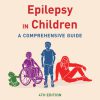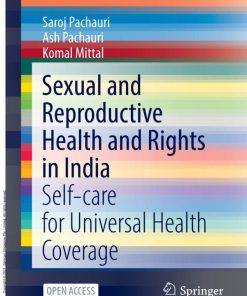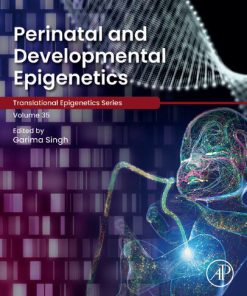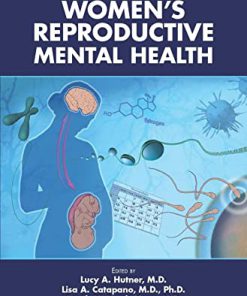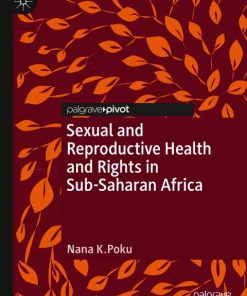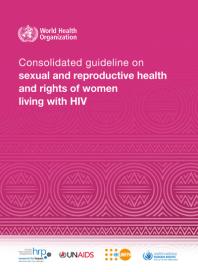Epigenetics and Reproductive Health 1st Edition by Nafisa H Balasinor, Priyanka Parte, Dipty Singh ISBN 9780128197530 0128197536
$50.00 Original price was: $50.00.$25.00Current price is: $25.00.
Epigenetics and Reproductive Health 1st Edition by Nafisa H Balasinor, Priyanka Parte, Dipty Singh – Ebook PDF Instant Download/Delivery: 9780128197530 ,0128197536
Full download Epigenetics and Reproductive Health 1st Edition after payment

Product details:
ISBN 10: 0128197536
ISBN 13: 9780128197530
Author: Nafisa H Balasinor, Priyanka Parte, Dipty Singh
Epigenetics and Reproductive Health, a new volume in the Translational Epigenetics series, provides a thorough overview and discussion of epigenetics in reproduction and implications for reproductive medicine. Twenty international researchers discuss epigenetic mechanisms operating during the formation of male and female gametes, fertilization and subsequent embryo and placental development, particularly in mammals and transgenerational epigenetic inheritance. This volume also addresses aberrant epigenetic changes influencing male and female infertility, pregnancy related disorders, and those potentially linked to therapeutic manipulations and assisted reproductive technologies. Emphasis is placed on identifying biomarkers for early detection of aberrant epigenetic mechanisms.
Later chapters examine the possibility of correcting these epigenetic dysfunctions, as well as current challenges and next steps in research, enabling new translational discoveries and efforts towards developing therapeutics.
- Thoroughly examines the influence of aberrant epigenetics during gametogenesis and embryogenesis, affecting parents, gametes and embryos, offspring and future generations
- Explores health outcomes for reproductive senescence, endocrine disruption, testicular cancer, prostrate cancer, breast cancer, ovarian, cancer, endometrial cancer and cervical cancers
- Features chapter contributions from international researchers in the field
Epigenetics and Reproductive Health 1st Edition Table of contents:
- Epigenetics and Reproductive Health
- Translational Epigenetics Series
- Epigenetics and Reproductive Health
- Copyright
- Dedication
- Contents
- Contributors
- Acknowledgment
- Introduction to epigenetics: basic concepts and advancements in the field
- Introduction
- Epigenetics
- Definition
- DNA methylation
- DNA methylation: establishment and erasure
- Histone modifications
- Higher-order chromatin organization
- Histone acetylation
- Histone methylation
- Other histone modifications
- The “Histone Code”- its writers, readers and erasers
- Non-coding RNAs
- RNA modifications
- Techniques for epigenetic analysis
- DNA methylation
- Histone modifications and chromatin remodelling
- Methods to analyze methylation of RNA and ncRNA-species
- Analysis of epigenetic modulating enzymes and their functions
- Single cell epigenomics
- Methodologies for single cell epigenetic analysis
- DNA methylation and other modification
- Histone modifications and transcription factor binding
- Chromatin structure and chromosome organization
- Epigenome manipulation and editing
- Epigenetic manipulation techniques
- Small-molecule inhibitors
- Targeted epigenome manipulations
- Zinc finger proteins
- TALEs
- CRISPR/Cas9 system
- References
- I – Spermatogenesis, oogenesis and fertility
- 1 – Epigenome reprogramming in the male and female germ line
- Introduction
- Reprogramming of mouse germ cells
- Primordial germ cell development in mice
- Induction of PGCs from mouse pluripotent stem cells
- Epigenome reprogramming of mouse PGCs
- Transcriptional program for the mPGC fate
- Remodeling of histone modification during mPGC development
- Outline of DNA methylation reprogramming during mPGC development
- Details of DNA methylation reprogramming
- DNA hydroxymethylation
- Interplay between UHRF1 and H3K9me2 reduction
- Interplay between DNA demethylation and H3K9me3
- Interplay between DNA demethylation and histone remodeling
- Epigenome in sexually differentiated germ cells in mice
- Epigenome reprogramming and female germ cell pathway
- Androgenic epigenome programming in male embryonic germ cells
- Epigenome aberration during in vitro differentiation of male germ cells
- Summary of the epigenome reprogramming of embryonic germ cell development
- Oocytes form a unique epigenome during oogenesis
- De novo DNA methylation and genomic imprinting during oogenesis
- Interplay between histone modification and de novo DNA methylation
- Broad domains of H3K4me3 during oogenesis
- Histone replacement during oogenesis
- Three-dimensional organization during oogenesis
- Epigenome reprogramming during the development of human germ cells
- PGC specification and migration in human embryos
- Reconstitution of early human PGCs and epigenome reprogramming in vitro
- Human pluripotent stem cells
- Induction of human PGC-like cells and their signaling and transcriptional regulation
- Reprogramming of human PGCs reconstituted in vitro
- Sex-specific differentiation of human germ cells
- Differentiation of female germ cells
- Differentiation of male germ cells
- Epigenome reprogramming during development of human germ cells in genital ridges
- Epigenome reprogramming in human oogonia reconstituted in vitro
- Concluding remarks
- Glossary
- Acknowledgments
- References
- 2 – Genomic imprinting
- Introduction
- Characteristics of imprinted genes
- The life cycle of imprints
- Genomic imprinting in embryogenesis
- Genomic imprinting in placentation
- Genomic imprinting in post-natal development
- Genomic imprinting in disease conditions
- Infertility
- Pregnancy-related disorders
- Genetic and environmental influences on genomic imprinting
- Genetic influences
- Environmental influences
- Endocrine disruptors
- Assisted reproductive technologies induced defects
- Concluding remarks
- References
- 3 – Chromatin remodeling of the male genome during spermiogenesis and embryo development
- Introduction
- Nuclear remodeling in sperm
- Eviction of somatic histones and accompanying events
- Hyperacetylation of histones
- DNA strand breaks
- Transcriptional surge
- Incorporation of testis specific histone variants
- Histone replacement by protamines
- From being sperm nucleus to paternal pronucleus
- Genome-wide reprogramming at fertilization
- Zygotic Genome Activation
- Methylation – demethylation
- Is sperm merely a vector for the paternal genome?
- The “not-so-small” importance of sperm small RNA population
- Sperm miRNAs
- Sperm non-coding RNAs
- Father’s extra-genomic contribution to the zygote
- References
- 4 – Epigenetic regulation in stem cells
- History of stem cell research
- Types of stem cells
- Induced pluripotent stem cells (iPSCs)
- Mechanism on the self-renewal of PSCs
- Core transcription factors
- OCT4
- Nanog
- Signal transduction pathways
- LIF-STAT pathway
- Wnt pathway
- TGF-β pathway
- Epigenetics
- DNA methylation
- Histone modification
- Chromatin remodeling
- Three-dimensional structure of genome
- Conclusion
- References
- 5 – Aberrant epigenetics and reproductive disorders
- Epigenetic alterations and reproductive system
- Role of epigenetic alterations in female infertility
- Polycystic ovary syndrome
- Endometriosis
- DNA methylation
- Modification of histone code
- Short non-coding RNAs and endometriosis
- HDAC inhibitor in the treatment of endometriosis
- Premature ovarian failure
- Male infertility and DNA methylation
- Methylation of imprinted genes and global/genome-wide and gene-specific methylation
- Global/genome-wide and gene-specific DNA methylation
- Histone modifications and male infertility
- Role of protamination in male infertility
- Non-coding RNAs and male infertility
- Conclusion
- References
- II – Pregnancy/developmental/placental epigenetics
- 6 – Epigenetic reprogramming in the embryo
- Introduction
- Epigenetics, a brief overview
- Epigenetic marks that are relevant to preimplantation development
- DNA methylation
- 5-Hydroxymethylcytosine (5hmC)
- Histone modifications
- Epigenetic reprogramming in the zygote and preimplantation embryo: an overview
- The gametes and their epigenetic characteristics
- The zygote: a hotbed of epigenetic activity
- Regulation of DNA methylation in the zygote
- Regulation of histones and histone modifications in the zygote
- Detailed mapping of methylation changes in preimplantation development
- Mediators of DNA methylation in gametes and preimplantation embryos
- The subcortical maternal complex is a key effector of epigenetic programming in the oocyte/early emb
- Demethylation events in the zygote and preimplantation embryo
- Species-specific differences in reprogramming
- RNA as a mediator of epigenetic events in gametes and preimplantation embryos
- Conclusions
- References
- 7 – Epigenetic regulation during placentation
- The placenta
- Description of the placenta and placental cells
- Structure of human placenta
- Placental cells
- Cytotrophoblasts and syncytiotrophoblasts
- Villous core stroma cells
- Pericytes and endothelial cells
- How does the placenta form?
- Human placental development from fertilization to full term
- Early placenta formation
- Transition to the primitive villous tree
- Establishment of the maternofetal barrier
- Placental blood circulation and spiral artery remodeling
- Maternal-placental circulation systems
- Spiral artery remodeling
- Fetal placental circulation system
- Placental physiology
- Feto-maternal exchange through placenta
- Breathing function
- Nutritive and excretory functions
- Endocrinal function
- Epigenetic mechanisms in placental development
- DNA methylation
- Non-coding RNAs
- miRs
- miRs in trophoblast proliferation
- miRs in trophoblast invasion, migration, and differentiation
- miRs in placental vascularization and angiogenesis
- Long non-coding RNAs (lncRNAs)
- Histone modifications
- Imprinting and placental development
- H19-IGF2 cluster
- The pseudo malignant placental epigenome
- Disturbed placental epigenetics
- Placental epigenetics in relation to placental-related pathologies
- Preeclampsia
- Intra uterine growth restriction (IUGR)
- Gestational diabetes (GDM)
- Environmental effects
- Diet
- Effects of alcohol on placental epigenetics
- Assisted reproductive technology
- Maternal metabolic diseases
- Thyroid dysfunction
- Obesity
- Conclusions and future perspectives
- References
- 8 – Epigenetic modulation during pregnancy and pregnancy related disorders
- Introduction
- Epigenetic regulation of placenta during pregnancy
- DNA methylation
- Chromatin remodeling
- MicroRNAs
- Epigenetics and pathogenesis of pregnancy disorders
- Miscarriage and preterm birth
- DNA methylation
- Chromatin remodeling
- MicroRNAs
- Fetal growth restriction (FGR)
- DNA methylation
- Chromatin remodeling
- MicroRNAs
- Preeclampsia
- DNA methylation
- Chromatin remodeling
- MicroRNAs
- Gestational diabetes
- DNA methylation
- Chromatin remodeling
- MicroRNAs
- Conclusion
- References
- 9 – Epigenetic involvement in fetal and neonatal origins of late-onset disease
- Introduction
- Fetal origins of late-onset disease and the underlying epigenetic mechanism
- Neonatal origins of late-onset disease and the underyling epigenetic mechanism
- Transgenerational epigenetic inheritance
- Medical and educational intervention in early life to correct epigenetic dysfunctions
- Conclusion
- Acknowledgments
- References
- III – Epigenetic – lifestyle, aging and environmental influence
- 10 – Impact of environmental chemicals and endocrine disruptors on mammalian germ cell epigenome
- Introduction
- Epigenetic effects of EDCs on male germ cell development
- DNA methylation
- ncRNAs
- Post-translational modifications of histones and chromatin remodeling
- Epigenetic effects of EDCs on female germ cell development
- Transgenerational epigenetic inheritance
- Conclusions and research perspectives
- References
- 11 – Influence of nutrition on reproductive health through epigenetic mechanisms
- Introduction
- Nutrition and reproductive health
- Macronutrients
- Micronutrients
- Nutrition and developmental origins of health and disease (DOHaD)
- One carbon metabolism
- Epigenetics
- Maternal nutrition, epigenetics and reproductive health
- Preeclampsia
- Gestational diabetes mellitus (GDM)
- Preterm birth (PTB)
- Intrauterine growth restriction (IUGR)
- Paternal nutrition, epigenetics and reproductive health
- Conclusion
- References
- 12 – Influence of stress and lifestyle on epigenetic modifications
- Introduction
- The influence of stress during prenatal life on epigenetic modifications of the offsprings
- The epigenetic changes of the offsprings upon exposure to stress in prenatal life due to disasters
- The epigenetic changes of the imprinted genes in offsprings due to stress during prenatal period
- Epigenetic changes of the HPA axis related genes in offsprings upon exposure to prenatal stress
- Epigenetic changes of the spermatozoa due to the paternal lifestyle
- Epigenetics and assisted reproductive technologies (ART)
- Conclusions
- References
- 13 – Aging of male and female gametes
- Introduction
- Increasing age of parents
- Implications of advanced parental age
- Epigenetics
- Epigenetics of the male gamete
- Epigenetics of the female gamete
- Epigenetics of the developing embryo
- Aging in sperm
- Chromatin modifications
- DNA methylation
- ncRNAs
- Aging calculator
- Aging in oocytes
- Conclusion
- Senescence
- References
- IV – Reproductive cancer and epigenetics
- 14 – Testicular and prostate cancers
- Introduction
- Male reproductive cancers
- Testicular cancer
- Prostate cancer
- Genetic and epigenetic interplay in reproductive cancers
- Epigenetic regulation of testicular cancer
- DNA methylation
- Histone modification
- MicroRNAs
- Epigenetic regulation of prostate cancer
- DNA methylation
- Histone modification
- MicroRNAs
- Clinical implication of testicular and prostate cancer epigenetics
- Epigenetic biomarkers in testicular cancer
- Therapeutic targets in testicular cancer
- Epigenetic biomarkers in prostate cancer
- Therapeutic targets in prostate cancer
- Conclusions
- Acknowledgments
- References
- 15 – Emerging patterns and implications of breast cancer epigenetics: an update of the current knowl
- Introduction
- Risk factors
- Classification
- Methylation and cancer
- Control of transcription by methylation
- Methylomics of breast cancer: DNA methylation and gene dysregulation as a promising landscape for br
- BRCA1
- CDH1
- APC
- CCND2
- PTEN
- GSTP1
- p16INK4α
- RASSF1A
- RAR-β2
- Histone modifications in breast cancer
- Noncoding RNAs influence on epigenetic alterations in breast cancer
- Circular RNAs
- Epigenetic landscape in breast cancer stem cells
- The potential utility of liquid biopsy-based epigenetic studies in breast cancer
- Epigenetic therapy of breast cancer
- Nucleoside analogs
- Non-nucleoside analogs
- Conclusion
- Acknowledgments
- References
- 16 – Ovarian & endometrial cancers
- Epidemiology of endometrial and epithelial ovarian cancer
- Epigenetics of endometrial and epithelial ovarian cancer
- DNA methylation in endometrial cancer
- DNA methylation in ovarian cancer
- Epigenetic therapy in endometrial and ovarian cancer
- Role of non-coding RNAs in ovarian and endometrial cancer
- ncRNA transcripts in ovarian cancer and endometrial cancer
- Small ncRNAs
- miRNA
- Conclusion
- References
- 17 – Epigenetic aberrations in cervical cancer
- Introduction
- Epigenetic alterations in cervical cancer
- DNA methylation
- Histone modifications
- Histone acetylation and deacetylation
- Histone methylation and demethylation
- Histone phosphorylation
- Influence of epigenetic alterations on cancer hallmarks
- Sustained proliferative signaling
- Limitless proliferation
- Evasion of apoptosis
- Migration and metastasis
- Angiogenesis
- Inflammation
- Therapeutics
- Conclusion
- References
- V – Epigenetics in diagnosis, prognosis and therapy
- 18 – Natural molecules as epigenetic modifiers in reproduction
- Introduction
- Folic acid (FA)
- Players in the endocannabinoid system
- Role of ECS in female reproductive system
- Role of ECS in male reproductive system
- Epigenetic effects on reproduction by cannabinoids
- Multigenerational effects of cannabis
- Conclusion
- References
- Index
People also search for Epigenetics and Reproductive Health 1st Edition:
nutrition and epigenetics
nutrition epigenetics and diseases
overview of epigenetics
phenotype and epigenetics
questions in epigenetics
Tags: Nafisa H Balasinor, Priyanka Parte, Dipty Singh, Epigenetics, Reproductive Health
You may also like…
Medicine - Clinical Medicine
Andrology Male Reproductive Health and Dysfunction Fourth Edition Eberhard Nieschlag
Medicine - Others
Medicine - Others
Textbook of Women’s Reproductive Mental Health by Lucy A. Hutner 9781615373864 1615373861
Medicine - Others
Relationships & Lifestyle - Women's Health & Lifestyle
Politics & Philosophy - Ethnography
Dying to Count Post Abortion Care and Global Reproductive Health Politics in Senegal Siri Suh
Uncategorized
Sexual and Reproductive Health A Practical Guide for Primary Care Joseph Truglio (Editor)


